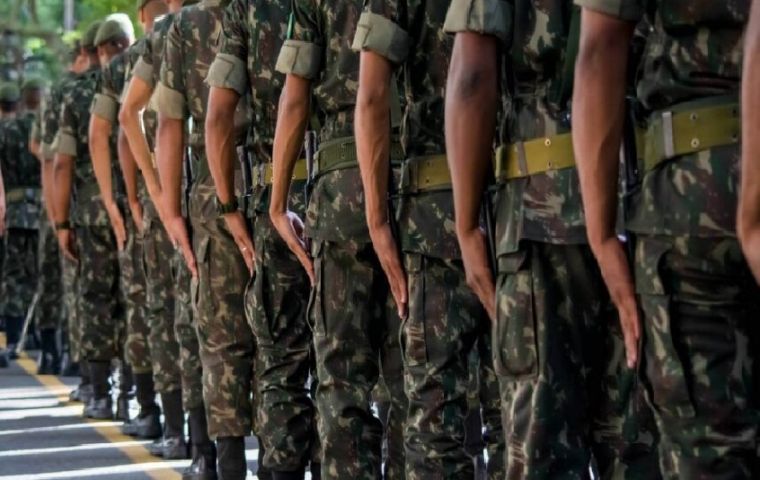MercoPress. South Atlantic News Agency
Brazil: STJ issues ruling favoring transgender military staff
 All records and internal communications must be updated to use the social names of transgender military personnel, the STJ also decided
All records and internal communications must be updated to use the social names of transgender military personnel, the STJ also decided The First Section of Brazil's Superior Court of Justice (STJ) unanimously ruled on Wednesday in favor of transgender military personnel -or transitioning thereinto- who are thus protected from being relieved of duty for their condition alone.
According to an Agencia Brasil wire, the decision standardizes the STJ's understanding of the matter and binds all lower courts, which are now required to follow this construction in any future proceedings. “Being transgender or undergoing gender transition does not, in itself, constitute incapacity or illness for purposes of military service,” said case rapporteur Teodoro da Silva Santos.
Any compulsory retirement or exclusion process based on gender change is also prohibited. The decision also determined that all records and internal communications must be updated to use the social names of transgender military personnel.
The STJ accepted the arguments of the Federal Public Defender's Office (DPU), which represented military personnel from Rio de Janeiro who were forced to take medical leave because of their transsexuality. One of them was even compulsorily retired, according to the lawsuit.
The group had already won an appeal, but the Federal Government took the matter to the STJ on behalf of the Armed Forces, arguing that entry into the military ranks requires clear and permanent gender conditions. The STJ dismissed the argument, stating that entry into a position intended for the opposite sex cannot serve as justification for dismissals of any kind.
It is worth recalling that the STJ should not be mistaken for the higher Supreme Federal Court (STF). Right behind the STF are four federal courts, including the STJ and the also famous Superior Electoral Court (TSE), the other two being the Superior Labor Court (TST), and the Superior Military Court (STM). Some judges can hold benches on more than one court.
The STJ is the highest Brazilian court for non-constitutional issues concerning both State and Federal ordinary courts, dealing mainly with matters of Common Justice. Its responsibility is to standardize the interpretation of federal law nationwide. It is made up of 33 judges who are subdivided into various panels. For example, the Special Court is composed of the 15 most senior justices and rules on criminal actions against governors and other authorities, among other duties. Then there are Sections -10 judges- of which specialized Turmas -5 judges- are another subdivision handling appeals of a non-repetitive nature.




Top Comments
Disclaimer & comment rulesCommenting for this story is now closed.
If you have a Facebook account, become a fan and comment on our Facebook Page!